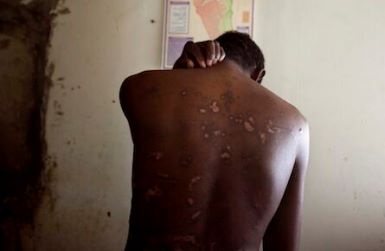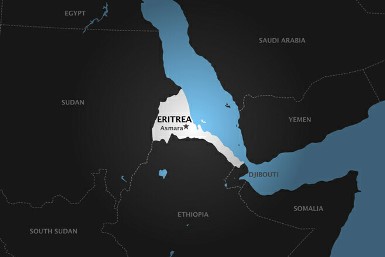Sudan authorities colluded on torture of Eritrean refugees: report
February 12, 2014 (KHARTOUM) – Authorities in Sudan have colluded with human traffickers in the kidnap and torture of hundreds of Eritrean refugees in the past 10 years, according to a new report released by Human Rights Watch (HRW) this week.

Eritrean refugees are routinely brutalised by their captors, mutilation, burning, beatings and sexual assault.
Torture is used to extort large ransom payments from victims’ families, who are forced to listen to the screams of their loved ones over the telephone.
“They (traffickers) threatened to cut off my fingers using scissors. Sometimes they came into the room, took the women out, and then I heard the women screaming. They came back crying. During the eight months, I saw six others die because of this torture”, a 17-year-old Eritrean boy, who was kidnapped in eastern Sudan in August 2011, told HRW.
Of two traffickers interviewed by HRW, one acknowledged that he tortured dozens of people, despite the fact that he considered the practice “haram” (shameful).
His most recent group was four Eritreans, whose relatives were told to pay $33,000 each for their release.
“Sometimes I tortured them while they were on the phone so the relatives could hear them scream. I did to them what I do to everyone; I beat their legs and feet, and sometimes their stomachs and chest, with a wooden stick. I hang them upside down, sometimes for an hour. Three of them died because I beat them too hard. I released the one that paid”, he told HRW.
VICTIMS HANDED OVER BY POLICE
Victims have described how they were intercepted near the border by Sudanese police in the Eastern Sudan town of Kassala, who arbitrarily detained them, then handed them over to traffickers.
Many reported being subjected to abuse for weeks or even months in and around Kassala or near the town of Arish in Egypt’s north-eastern Sinai.

HRW says both countries are failing to adequately investigate and prosecute traffickers who severely abuse their victims, a breach of their obligations under national and international anti-trafficking laws, international human rights law and national criminal law.
“Egypt and Sudan are giving allegedly corrupt security officials a free pass to work with traffickers,” Simpson said. “The time has long passed for Egypt and Sudan to stop burying their heads in the sand and take meaningful action to end these appalling abuses.”
FLEEING REPRESSION
According to HRW, since 2004 more than 200,000 Eritreans have fled repression in their homeland, which is referred to as the North Korea of Africa.
Such is their desperation that many Eritreans are willing to risk their lives to escape to remote refugee camps in eastern Sudan and Ethiopia, dodging Eritrean border guards, who adhere to a shoot to kill policy against anyone found to be leaving without permission.
Up until 2010, tens of thousands paid smugglers to take them through Sinai to Israel before the latter constructed a 240km fence along its border to keep Eritreans out.
Since then, traffickers have continued to kidnap Eritreans in eastern Sudan and sell them to Egyptian traffickers in Sinai.
All of the Eritreans interviewed by HRW who had arrived in Sinai in 2012 said that traffickers had taken them from Sudan to Egypt against their will.
“Over the past three years, Sinai has increasingly represented a dead-end comprised of captivity, cruelty, torture and death”, the report said.
With few other options, hundreds of victims are forced to work for their traffickers as domestic servants or unpaid labourers.
Up until December 2013, Egypt had prosecuted just one person with trafficking offences, while Sudan had launched 14 prosecutions of traffickers and four of police officers in connection with trafficking and torture.
(ST)
